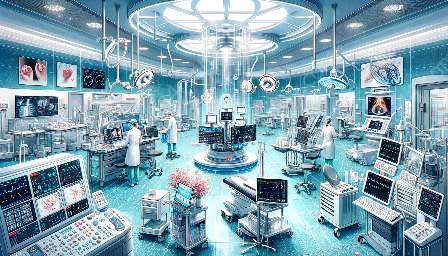Biomaterials play a vital role in determining the performance, safety, and effectiveness of medical devices. Understanding the impact of biomaterials on medical devices is crucial for ensuring the development of innovative and reliable healthcare technologies.
Biomaterials in Medical Devices
Biomaterials are substances that have been engineered to interact with biological systems for medical purposes. These materials are used to create various components of medical devices, such as implants, prosthetics, sensors, and drug delivery systems. The choice of biomaterials directly impacts the design, functionality, and performance of medical devices, and it is essential to consider biocompatibility, mechanical properties, and degradation characteristics when selecting biomaterials for specific applications.
Biocompatibility and Safety
One of the critical factors in the selection of biomaterials for medical devices is biocompatibility. Biocompatible materials are those that are well-tolerated by the human body without eliciting harmful effects. When biomaterials are used in medical devices, they must be carefully assessed to ensure that they do not induce adverse reactions, inflammation, or immune responses in patients. Biocompatibility testing is crucial to evaluate the interaction between biomaterials and biological tissues, and it is essential for the safety and reliability of medical devices.
Mechanical Properties and Durability
The mechanical properties of biomaterials directly impact the durability and performance of medical devices. For instance, orthopedic implants require materials with high strength and wear resistance to withstand the mechanical stresses within the human body. Similarly, cardiovascular devices, such as stents and heart valves, demand biomaterials with specific mechanical properties to ensure optimal functioning under dynamic conditions. Understanding the mechanical behavior of biomaterials is essential for designing medical devices that can withstand the complex biomechanical environment within the human body.
Degradation Characteristics and Longevity
Some medical devices require biomaterials that exhibit controlled degradation over time. Bioresorbable materials are designed to gradually degrade within the body as new tissue forms, making them particularly suitable for temporary implants and drug delivery systems. Understanding the degradation characteristics of biomaterials is crucial for predicting the longevity and performance of medical devices in clinical settings. The ability to tailor the degradation kinetics of biomaterials allows for the development of advanced medical devices that can adapt to the changing physiological conditions of patients.
Enhancing Functionality and Performance
Biomaterials have the potential to enhance the functionality and performance of medical devices by enabling advanced capabilities, such as tissue integration, drug release, and biophysical sensing. Surface modifications and coatings with biomaterials can promote better interactions with biological tissues, leading to improved device integration and functionality. Furthermore, biomaterial-based drug delivery systems allow for precise control over drug release kinetics, ensuring therapeutic efficacy while minimizing side effects. The integration of biomaterials into medical devices is essential for unlocking new functionalities and improving overall performance in healthcare technologies.
Future Perspectives and Innovations
Advancements in biomaterial science continue to drive innovation in the development of medical devices. Researchers are exploring new biomaterials with enhanced properties, such as self-healing capabilities, bioactivity, and stimuli-responsive behavior. These innovative biomaterials hold the potential to revolutionize the design and performance of next-generation medical devices, leading to improved patient outcomes and healthcare delivery. Additionally, the integration of biomaterials with advanced manufacturing techniques, such as 3D printing and nanotechnology, is paving the way for the creation of personalized and highly functional medical devices tailored to individual patient needs.
Conclusion
Biomaterials play a crucial role in shaping the performance, safety, and functionality of medical devices. Understanding the impact of biomaterials on medical devices is fundamental for ensuring biocompatibility, durability, and enhanced performance. The ongoing innovations in biomaterial science are poised to drive the development of next-generation medical devices that offer advanced capabilities and improved patient care.


